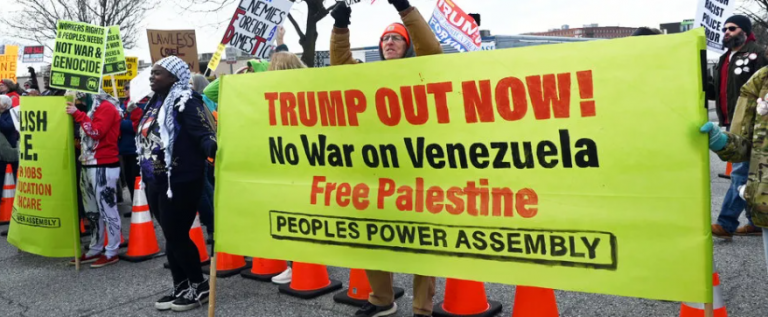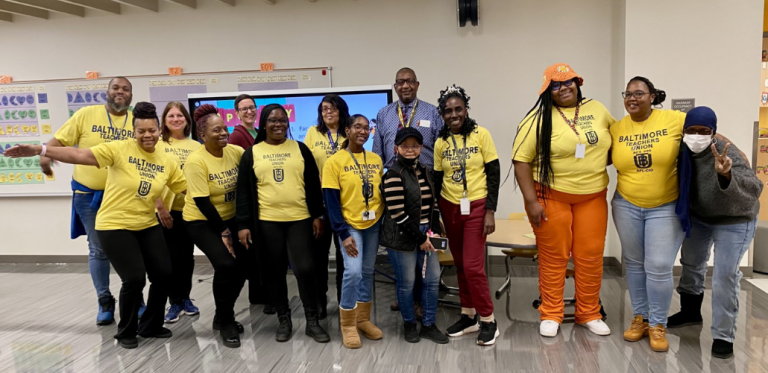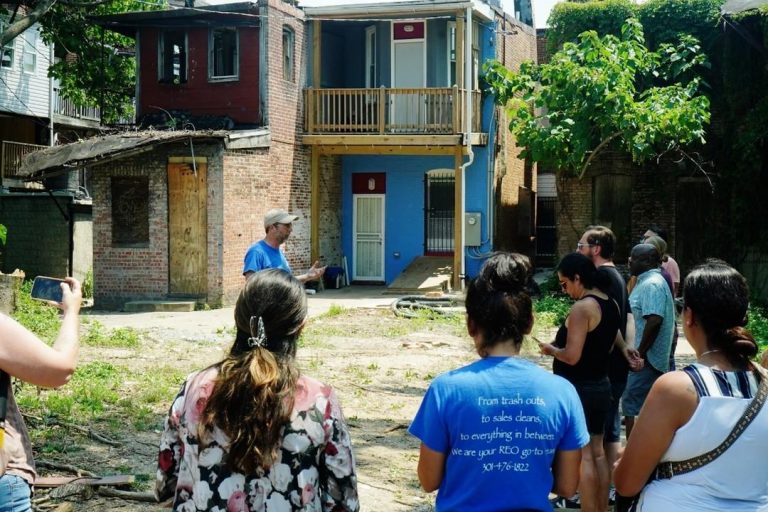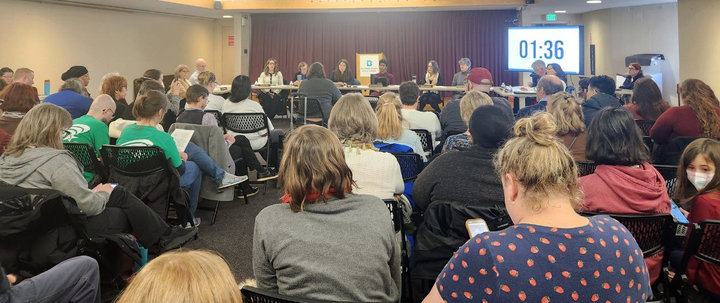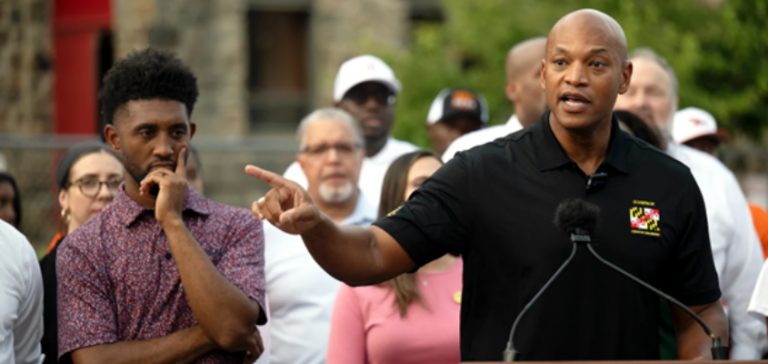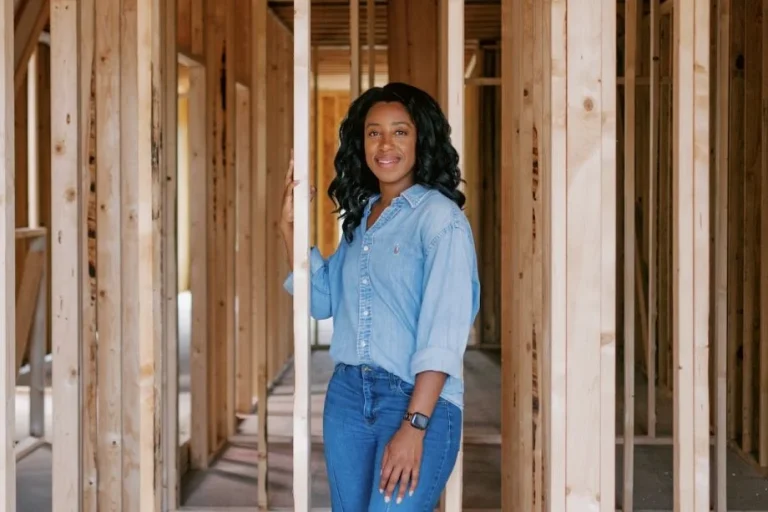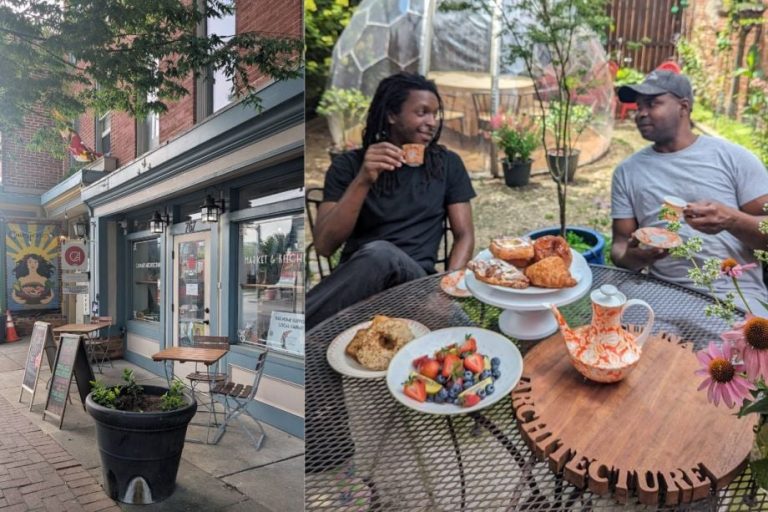At Army–Navy Game, Activists Confront Trump Over Venezuela
Baltimore, Dec. 13 — Activists shifted the spotlight from the pageantry of the Army–Navy game, using Donald Trump’s attendance as a platform to center a powerful demand: “No war on Venezuela.”
Hundreds lined the streets outside the stadium where Trump was scheduled to appear, unfurling banners that read, “No war on Venezuela and Palestine” and “No to ICE — Money for jobs, education, and health care.”
Andrew Matatag, representing the publication Struggle-La Lucha, drew a sharp contrast. “Almost every police agency on record — from the Secret Service to Homeland Security — is amassed here today to protect Trump,” he said.

